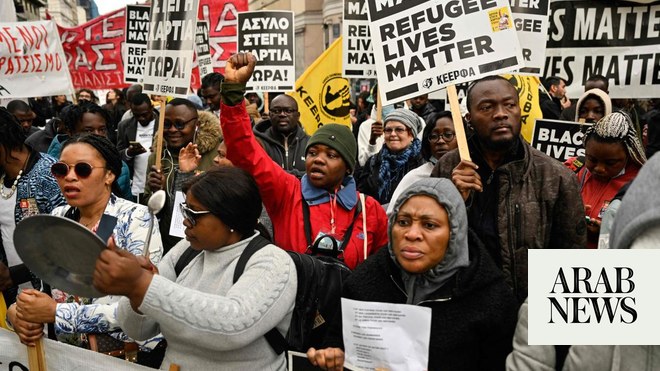
The head of GCHQ has conceded that the British spy agency is “not nearly diverse enough” and admitted it urgently needs more black and ethnic minority recruits to better reflect the country as a whole.
Jeremy Fleming told a security conference on Wednesday that GCHQ required “a different set of minds”, in remarks that came a few days after an official history of the signals intelligence agency revealed it enforced a colour bar from the 1950s to the 1980s.
“It is the case that in my business, we are not nearly diverse enough,” Fleming told the Atlantic Future Forum, and that GCHQ did not “reflect the country that we’re here to serve”.
He added: “When I’m talking about the numbers of people from our ethnic minority communities who are part of my business, then we’re far too low, we’re way off what the natural national picture suggests it should be.”
The secretive organisation releases few details about its staff, although a special report from the Intelligence and Security Committee from 2018 demonstrated that GCHQ had the lowest proportion of black staff of the country’s main spy agencies.
A total of 3.1% of its employees were black or minority ethnic in 2016/17 – below the 7.7% of MI6 and the 8.1% of MI5 as reported at the time – and well below the UK average of 14% as recorded at the last census. The proportion at MI5 has since risen to 10%, but no other more recent figures are available.
Earlier this week, an authorised history of GCHQ, Behind The Enigma, revealed that from 1956 right into the 1980s the spy agency did not want to employ any minority ethnic person, defined in the language of the time as anybody “either or both of whose parents is not of old Dominion white stock”.
That went further than Foreign Office rules of the time, which only sought to ban people who were not either “British subjects” – at a time when decolonisation had not concluded – or Irish nationals.
Author John Ferris reveals that GCHQ sought to conceal its racist practice, and asked civil service recruiters at the time not to send over any black, minority ethnic or mixed race candidates, judging them on the basis of their appearance alone.
The agency did not want to use its own vetting process to exclude people on the grounds of race because, the book reveals, “we cannot risk a candidate connecting GCHQ’s refusal to have him with his coloured ancestry”.
The practice was dropped at some point in the 1980s but Ferris, who was given unique access to GCHQ’s archives, argues that “the process remains painful and incomplete” to this day.
GCHQ insiders acknowledge that the revelation is embarrassing, although they argue it was in common with other spy agencies at the time. A GCHQ spokesperson added: “These historical cross-government recruitment practices were clearly unacceptable.”
All three spy agencies are desperate to combat the idea they are staffed by Oxbridge-educated white males recruited by a tap on the shoulder. GCHQ runs its own careers pages and posts details of vacancies in an attempt to demystify the recruitment process.
Last week, MI5’s new director general, Ken McCallum, said the Black Lives Matter movement had prompted “really deep and searching conversations with our own people” and that staff had pointed cases of “outright racist behaviours within the organisation”.












